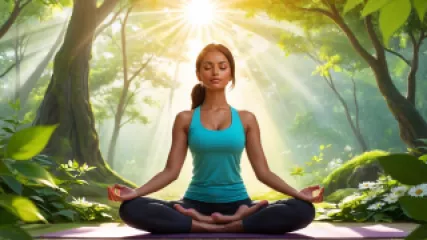Top 10 Anxiety Relief Exercises for Better Mental Health
Welcome to our comprehensive guide on anxiety relief exercises for better mental health. Anxiety is a common condition that affects millions of people worldwide. It can manifest in various ways, including feelings of unease, worry, and fear. While seeking professional help through online therapy sessions or personal development coaching is crucial, incorporating calming techniques for anxiety into your daily routine can greatly contribute to managing and reducing anxiety symptoms.
1. Deep Breathing Exercises
Deep breathing exercises are simple yet effective techniques that help calm the mind and relax the body. Find a comfortable position, close your eyes, and take slow, deep breaths. Inhale deeply through your nose, allowing your belly to rise, and exhale slowly through your mouth, letting go of any tension or stress with each breath.
2. Progressive Muscle Relaxation
Progressive muscle relaxation involves tensing and relaxing different muscle groups in your body. Start by tensing the muscles in your toes and gradually work your way up to your head. Focus on the sensation of tension and release as you let go of any built-up stress or anxiety.
3. Mindfulness Meditation
Mindfulness meditation is a practice that involves bringing your attention to the present moment without judgment. Find a quiet space, sit comfortably, and focus on your breath or a specific sensation in your body. Allow thoughts to come and go without getting caught up in them, cultivating a sense of calm and awareness.
4. Yoga
Yoga combines physical movement, breath control, and meditation to promote relaxation and reduce anxiety. Practicing yoga regularly can improve flexibility, strength, and overall well-being. There are numerous yoga poses and sequences specifically designed to alleviate anxiety and promote mental health.
5. Guided Imagery
Guided imagery involves using your imagination to create a peaceful and calming mental image. Close your eyes, visualize a serene location or situation, and engage all your senses in the experience. This technique can help shift your focus away from anxious thoughts and bring about a sense of tranquility.
6. Journaling
Journaling provides an outlet for expressing your thoughts and emotions. Set aside time each day to write freely without judgment. Explore your feelings, fears, and concerns on paper, allowing yourself to gain clarity and perspective. Journaling can be a cathartic practice that promotes self-reflection and emotional well-being.
7. Exercise
Exercise releases endorphins, which are natural mood-boosting chemicals in the brain. Engaging in physical activity regularly can help reduce anxiety and improve overall mental health. Choose activities you enjoy, such as walking, running, dancing, or cycling, and make them a part of your routine.
8. Aromatherapy
Aromatherapy utilizes essential oils to promote relaxation and relieve stress. Lavender, chamomile, and jasmine are popular scents known for their calming properties. You can use essential oils in a diffuser, add a few drops to a bath, or even apply them topically (diluted with a carrier oil) for a soothing effect.
9. Social Support
Social support plays a significant role in managing anxiety. Reach out to friends, family, or support groups who can provide understanding, empathy, and encouragement. Sharing your feelings and experiences with others can help alleviate anxiety and foster a sense of belonging.
10. Visualization
Visualization involves creating mental images of positive outcomes and desired experiences. Close your eyes and imagine yourself succeeding in a challenging situation or achieving your goals. Visualization can help reframe negative thoughts and promote a more optimistic mindset.
Incorporating these anxiety relief exercises into your daily routine can significantly improve your mental health and overall well-being. Remember that everyone is unique, and it may take some experimentation to find the techniques that work best for you. Combining these exercises with online therapy sessions or personal development coaching can provide a holistic approach to managing anxiety and promoting a healthier mindset.






